Early Years and Education
Justin Trudeau, the eldest son of Pierre and Margaret Trudeau, was born in Ottawa on Christmas Day, 1971. He had politics in his blood: his father was prime minister and his maternal grandfather, Jimmy Sinclair, was a federal Cabinet minister in the 1950s. After his parents separated when he was six, Justin and his two younger brothers Alexandre and Michel lived with their father. In their early years, the boys lived in the prime minister’s official residence, 24 Sussex Drive, where they were often in the public eye.
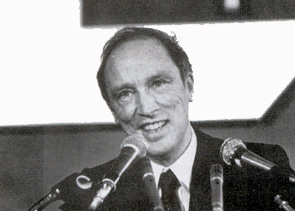
When Justin was 12, his father retired from politics and moved with his sons to Montréal, where Justin completed his secondary schooling at Collège Jean-de-Brébeuf, his father’s alma mater.
Trudeau attended McGill University, where he was a member of the debating team and a volunteer in the student society’s Sexual Assault Centre. After graduating with a Bachelor of Arts in English literature in 1994, he spent a year travelling overseas. He returned to McGill, where he studied to become a teacher. Before completing his degree, Trudeau moved to Whistler, British Columbia, where he became a snowboarding instructor and worked as a bouncer at a nightclub. After several months, he returned to teacher’s college, this time to the University of British Columbia, where he earned a Bachelor of Education degree in 1998.
After working as a substitute teacher in Coquitlam, BC, he found a permanent position at West Point Grey Academy, a private school in Vancouver, where he primarily taught French and math. Eventually he moved to the public school system, teaching at Sir Winston Churchill Secondary School in Vancouver.
Personal Change
Two tragedies helped alter the trajectory of Trudeau’s life. He was deeply shaken when his brother Michel died in an avalanche above Kokanee Lake, BC, in 1998. Then in 2000, Trudeau’s father died of prostate cancer. Trudeau’s eulogy at the televised state funeral brought him back to the public eye, and fuelled speculation that he would pursue a career in politics.
Between 2002 and 2007 Trudeau returned to Montreal to study first engineering at the University of Montreal’s École Polytechnique, and then environmental geography at McGill. He did not complete either program, turning instead to advocacy work.
Trudeau and Sophie Gregoire started dating in 2003. She had been a childhood friend of his younger brother Michel and was working as a television and radio host for both French and English networks in Québec. They married on 28 May 2005 and have three children — Xavier, Ella-Grace and Hadrien.

Advocacy Work
Trudeau first became active on several public issues, beginning in Vancouver. After his brother’s death, he worked to increase avalanche awareness, becoming a director of the Canadian Avalanche Foundation and helping to establish the Canadian Avalanche Centre. He also served as a director of the Katimavik youth volunteer service program, eventually becoming chair of the board. He spoke out on environmental issues, heading the Nahanni Forever campaign, aimed at protecting and expanding the Nahanni National Park Reserve in the Northwest Territories, which was threatened by a proposed mine.
In 2006, Trudeau was master of ceremonies at a large rally in Toronto, urging the United Nations to do more to end ethnic cleansing in Darfur, Africa. In 2008, he urged young people to participate in politics in a speech at the National Me to We Day rally in Toronto, an event organized by the Free the Children charity (see also Craig Kielburger). Throughout this period, Trudeau was a frequent media presence. He was master of ceremonies for the Giller literary prize gala; he portrayed First World War soldier Talbot Papineau in a CBC miniseries; and he hosted a weekly current events segment on a Montréal French-language radio station.
Into Politics
Trudeau had not been active in party politics in his youth, but after the Liberal defeat in the federal election of 2006, he offered his help to Tom Axworthy, former principal secretary to Pierre Trudeau and head of the party’s Renewal Commission. Axworthy appointed Justin chair of the commission’s task force on youth issues.
In the 2006 Liberal leadership race, Trudeau campaigned for former Ontario Cabinet minister Gerard Kennedy, transferring his support to eventual winner Stéphane Dion after Kennedy dropped out. In the process, Trudeau discovered that he had a talent for campaigning. In 2007, this helped him win the Liberal Party nomination in the Montréal riding of Papineau, where he defeated the party establishment’s favoured candidate.
Francophones made up almost half the population of Papineau. Many were Québec nationalists who had helped elect a separatist Bloc Québécois member of Parliament (MP) in the 2006 election, and who claimed that Trudeau was hostile to Québec — as they believed his father had been. On election day in 2008, Trudeau won the riding, but his party lost the general election, with the Conservatives remaining in power with a minority government.
Member of Parliament
After Michael Ignatieff became Liberal leader in 2009, Trudeau was named the party’s critic for youth and multiculturalism, and later for youth, citizenship, and immigration.
Although Trudeau was re-elected in Papineau in 2011, the federal election was a disaster for his party, which fell to third place in the House of Commons. The Conservatives won a majority of the seats, while the second-place New Democrats supplanted the Liberals as official Opposition. The result was the worst in Liberal Party history, leading some analysts to predict the party’s impending death. After Ignatieff stepped down, pressure mounted on Trudeau to seek the leadership, but many critics refused to take him seriously, questioning his experience and intellectual abilities.
Trudeau sought a way to prove himself publicly. He challenged Conservative Senator Patrick Brazeau to a boxing bout to raise funds for cancer research. “People often underestimate me,” Trudeau said. “They see me as a lightweight. If I win this fight, perhaps they’ll take me more seriously.”
Friends advised Trudeau against taking on the younger and heavier Brazeau, a former soldier who held a black belt in karate. Pundits assumed Trudeau would lose: the only question was whether he would be hurt in the ring. But they had not factored in Trudeau’s experience as an amateur boxer and the training regimen he followed before the fight. Trudeau calculated that Brazeau, a smoker, would not last long in the ring. In March 2012, Trudeau won the bout in the third round after the referee stopped the fight.
Liberal Leadership
On 2 October 2012, Trudeau launched a campaign for his party’s leadership. He quickly emerged as the frontrunner over his lesser-known rivals. His candidacy stirred widespread public interest, and the popularity of the party began rising in opinion polls in anticipation of a Trudeau victory. On 14 April 2013, he easily secured the leadership, winning almost 80 per cent of the vote.
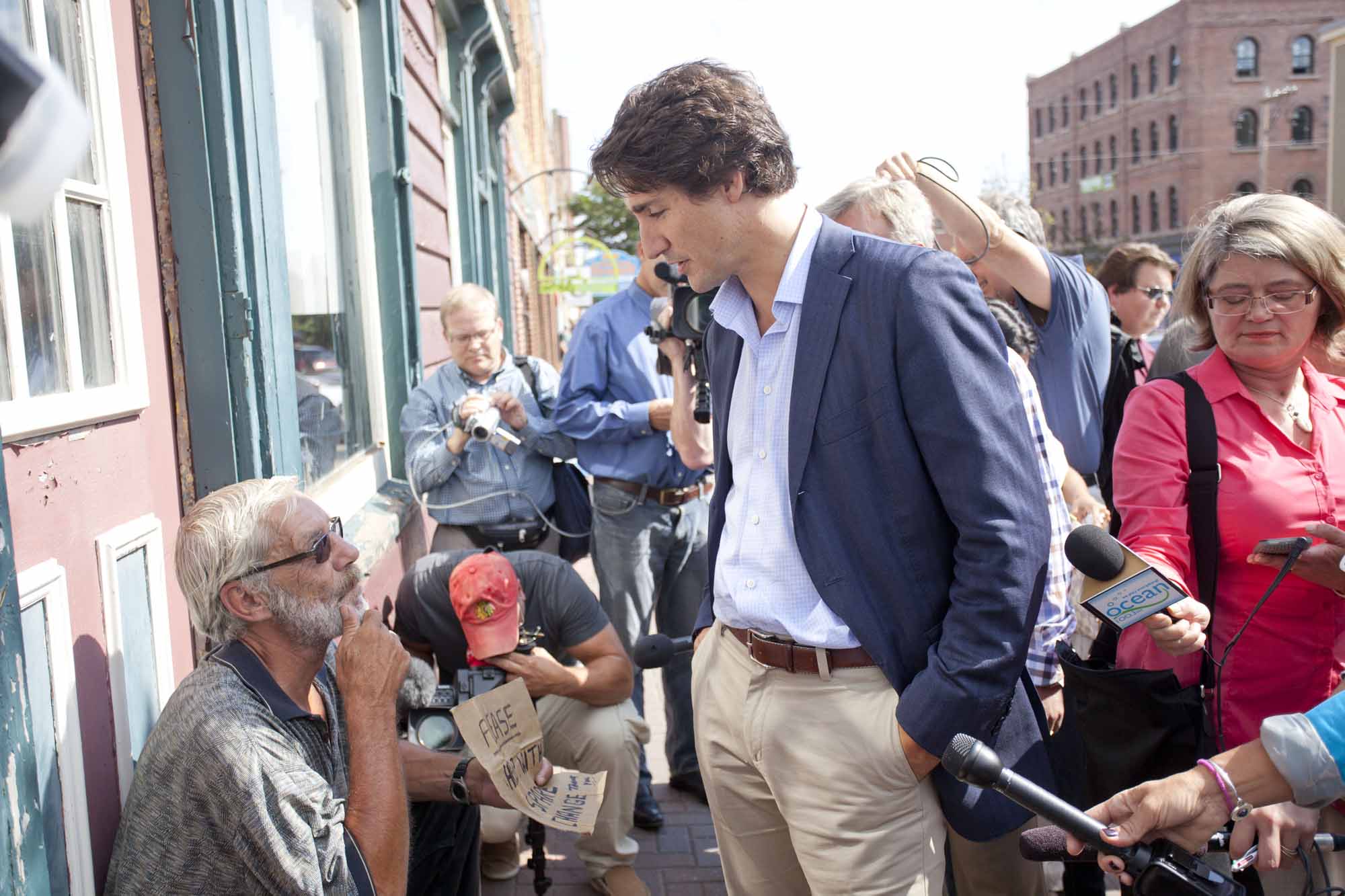
Trudeau immediately set out to reinvigorate a struggling Liberal party, torn by the civil war between former prime ministers Jean Chrétien and Paul Martin, and reeling from Ignatieff’s ineffective leadership. Trudeau proved to be an energetic cheerleader and a formidable fundraiser. Meanwhile, opponents viewed him as a dilettante. The Conservatives under Prime Minister Stephen Harper calculated that Trudeau would eventually trip in an election campaign, if given enough time.
2015 Election
Harper called the election more than two months before voting day, launching the longest federal campaign since the 1870s. In recent campaigns there had usually been two televised leaders’ debates, one in English and one in French. This time, the New Democrats and the Conservatives pushed for more debates, convinced that Trudeau would fold under the pressure of the spotlight. The three parties agreed to an unprecedented five leaders’ debates.
Exceeding expectations, the Liberals ran a solid campaign and Trudeau performed well in the debates. The Liberals promised a change from nine years of Conservative government, pledging to legalize marijuana, admit tens of thousands of Syrian refugees, and run small deficits to fund infrastructure improvements. On election day, 19 October 2015, the Liberals jumped from third to first place, winning a majority government of 184 out of 338 Commons seats — 150 more than in 2011.
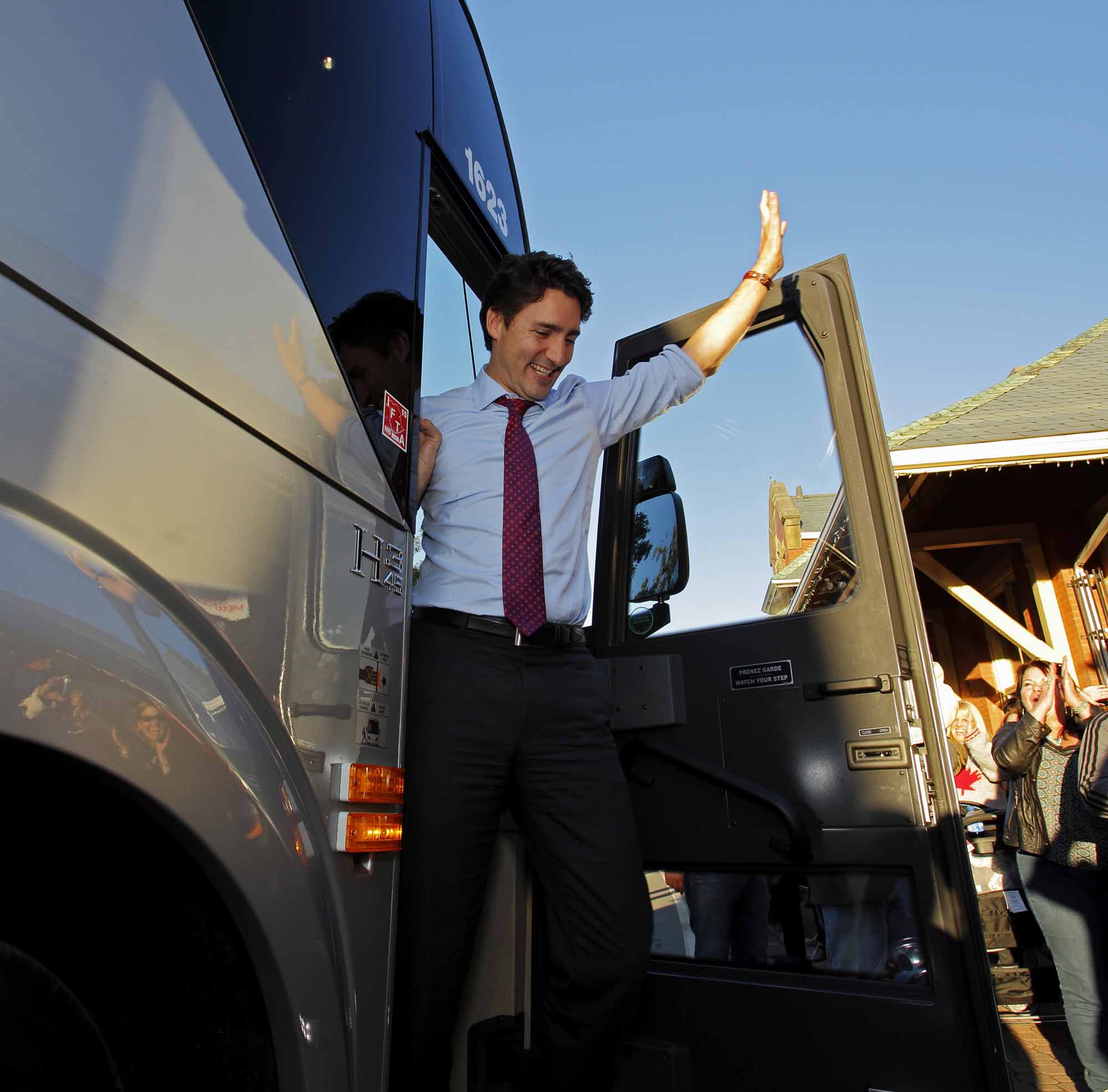
Prime Minister
Trudeau immediately made headlines by forming a Cabinet composed of an equal number of women and men, a first in Canada.
In its first two years, Trudeau’s government admitted 40,000 Syrian refugees to the country. It cut the personal income tax rate on middle-income earners while increasing it for wealthier Canadians. Revisions to the Canada Pension Plan raised contribution rates and reduced overall tax savings for many, but the changes also increased the benefits for retirees.
The government also launched the National Inquiry into Missing and Murdered Indigenous Women and Girls. The inquiry soon became mired in internal conflict and disorganization. After the members resigned, the government appointed new commissioners. The report, which was released in 2019, concluded that police and prosecutors were often indifferent to the murders of Indigenous women. It repeatedly used the word genocide to describe Canada’s treatment of Indigenous people. “We accept their findings, including that what happened amounts to genocide,” said Trudeau. “There are many debates ongoing around words and use of words. Our focus as a country, as leaders, as citizens must be on the steps we take to put an end to this situation.”
To fight climate change, the Trudeau government encouraged provinces to implement measures to reduce greenhouse gas emissions. In 2019, the federal carbon tax came into effect in Saskatchewan, Manitoba, Ontario and New Brunswick, as the governments of those provinces had not created their own carbon pricing plans.
The Trudeau government also legalized assisted dying in certain circumstances, legalized marijuana, implemented a 10-year, $55 billion National Housing Strategy and created the Canada Child Benefit for low- and middle-income families.
Trudeau apologized for seven historic wrongs. Ottawa’s 1914 decision to deny East Asian passengers on the ship Komagata Maru entry to Canada;. the abuse of residential school students in Newfoundland; the wrongful conviction and hanging of Tsilhqot’in chiefs during the Chilcotin War of 1864. The rejection of 900 German Jews fleeing persecution in 1939 (see MS St Louis); the government’s management of the tuberculosis epidemic among Inuit from the 1940s to 1960s; and the federal government’s discrimination against civil servants based on their sexual orientation (see Canada's Cold War Purge of LGBTQ from Public Service). When Trudeau exonerated Pitikwahanapiwiyin (Chief Poundmaker) for the crime of treason-felony tied to the chief’s role in the North-West Rebellion of 1885, he formally apologized on behalf of the federal government
Senate Reform
Trudeau carried out the first significant reform of the Senate since the 1965 imposition of a retirement age of 75. In opposition, he had promised to work toward a non-partisan Senate and, as a first step in 2014, pushed Liberal senators out of the party’s parliamentary caucus.
As prime minister, he appointed an advisory board to recommend Senate appointees based on merit, and he established a government leader in the Senate independent of any Senate caucus. New senators now sit as independents, not as members of a party caucus. Within two years, the independents outnumbered Conservative senators, who had formed the largest caucus in the chamber.
Relations with Donald Trump
After the election of United States President Donald Trump in 2016, much of the Trudeau government’s attention shifted to Canada–US relations. The challenge came both from Trump’s threat to cancel the North American Free Trade Agreement (NAFTA) and his general unpredictability. Trudeau formed a friendly relationship with Trump, avoiding public criticism of his policies. Trudeau also reached beyond the Liberal Party for help, consulting former prime minister Brian Mulroney, former interim Conservative leader Rona Ambrose, and other distinguished Canadians with strong ties in the US.
In early 2018, when it looked like the US threat to cancel the deal was more than a negotiating ploy, the Trudeau government took a harder line, challenging US trading practices in a complaint to the World Trade Organization. In November 2018, the three members of NAFTA announced that they had reached a new trade agreement: the Canada–United States–Mexico Agreement (CUSMA). The differences between NAFTA and CUSMA are minor. NAFTA remains in effect until all parties ratify the new pact.

Controversies and Challenges
The Trudeau government ran larger-than-anticipated deficits and failed to balance the federal budget before the 2019 election as it had originally promised would be the case. It was also unable to fix the new federal employee payroll system, called Phoenix, which has been mired in problems since its 2016 launch. As with previous governments, efforts to purchase new fighter jets and naval vessels were repeatedly delayed. Trudeau has also faced criticism for backing away from a major 2015 campaign pledge to reform the electoral system.
Trudeau has faced opposition from environmental activists and the BC government over the Liberals’ decision to approve the Trans Mountain Expansion Project, which would expand petroleum exports from the Alberta’s oil sands — an ongoing source of political tension in the second half of his mandate.
In 2017 Trudeau was embroiled in an ethics scandal — and found to have breached the federal conflict of interest law — after taking family holidays on the private Bahamas island of the billionaire spiritual leader, the Aga Khan, whose Canadian foundation has in the past lobbied the Prime Minister’s Office (PMO) and received federal funding.
Trudeau and the Liberal government were accused of political interference in a case against Vice-Admiral Mark Norman. Norman had been charged with breach-of-trust for allegedly leaking confidential information in 2014–15 regarding a defence contract for a military supply vessel. The charge was stayed in May 2019, after the defence uncovered evidence that Norman had been working closely on the deal with staff in the office of former prime minister Stephen Harper and had been authorized to share information with Davie Shipyard, the company that was awarded the contract. Norman’s legal team accused the Liberal government of deliberately withholding relevant documents from the original investigation, and for interfering in the prosecution against Norman. Trudeau’s government denied any political interference but announced that it would cover Norman’s legal fees. The House of Commons also issued an official apology to Norman. In June 2019, the Department of National Defence announced that it had reached a settlement with Norman, who would retire from the armed forces.
In February 2019, another controversy erupted in Trudeau’s government when Jody Wilson-Raybould resigned from Cabinet and went public with allegations of improper pressure from the PMO while she was attorney general. Her resignation came in the wake of revelations in The Globe and Mail newspaper that the PMO had attempted to influence her actions in a federal case against engineering firm SNC-Lavalin. Wilson-Raybould’s testimony before a parliamentary committee resulted in opposition calls for Trudeau to resign, as well as requests for a public inquiry or criminal investigation into the government’s actions. Gerald Butts, the principal secretary to the Prime Minister, stepped down. Treasury Board president Jane Philpott resigned from Cabinet, citing “lost confidence” in the government. Trudeau later ejected both Philpott and Wilson-Raybould from the Liberal caucus. In August 2019, a report by Ethics Commissioner Mario Dion concluded that Trudeau had exerted improper pressure on the Attorney General and breached conflict of interest law. Responding to the report, Trudeau said he accepted responsibility for mistakes he had made but disagreed with some of Dion’s findings. Other Liberals argued that Dion misinterpreted the Conflict of Interest Act. Public opinion polls showed that support for the Liberals plummeted after Wilson-Raybould’s resignation in February but began to recover in the early summer of 2019.
Early in the 2019 election campaign, photos and video surfaced of Trudeau in blackface on three separate occasions, including at an Arabian Nights-themed party when he was a teacher at West Point Grey Academy in 2001. The two other occasions happened when Trudeau was in high school. Trudeau immediately apologized, addressing his remarks directly to “racialized Canadians who face discrimination every single day in their lives even in a country like Canada.”
What I did hurt them, hurt people, who shouldn’t have to face intolerance and discrimination because of their identity. This is something that I deeply, deeply regret. Darkening your face, regardless of the context of the circumstances is always unacceptable because of the racist history of blackface. I should have understood that then and I never should have done it.
The incident was widely reported on internationally as well. Some of the outlets that reported on it at length were the BBC, CNN, the New York Times and Al Jazeera.
2019 Federal Election
Despite these controversies, Justin Trudeau won his riding in the federal election held on 21 October 2019. The Liberal Party won 157 seats in total, giving it a relatively strong minority. However, compared to the 2015 election, the party lost support in every province, particularly in the prairies, where Alberta and Saskatchewan did not elect a single Liberal MP. The Liberals also lost the popular vote, receiving only 33 per cent compared to the Conservatives at over 34 percent.

 Share on Facebook
Share on Facebook Share on X
Share on X Share by Email
Share by Email Share on Google Classroom
Share on Google Classroom

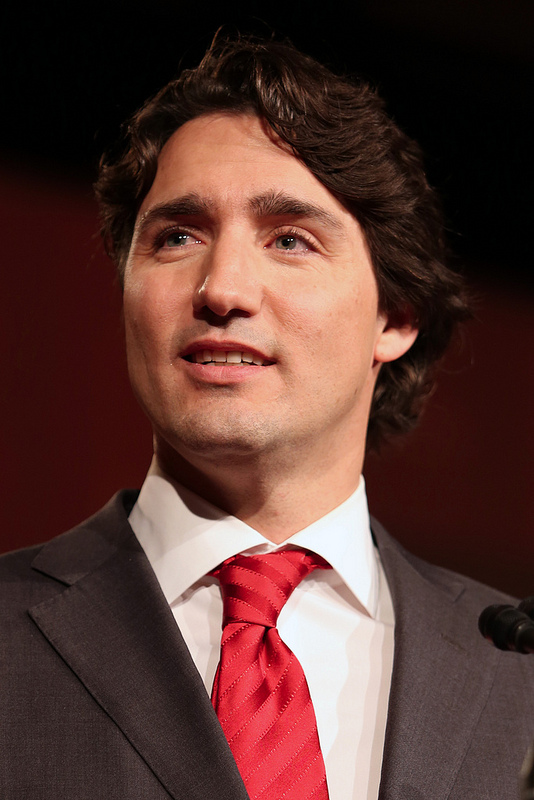
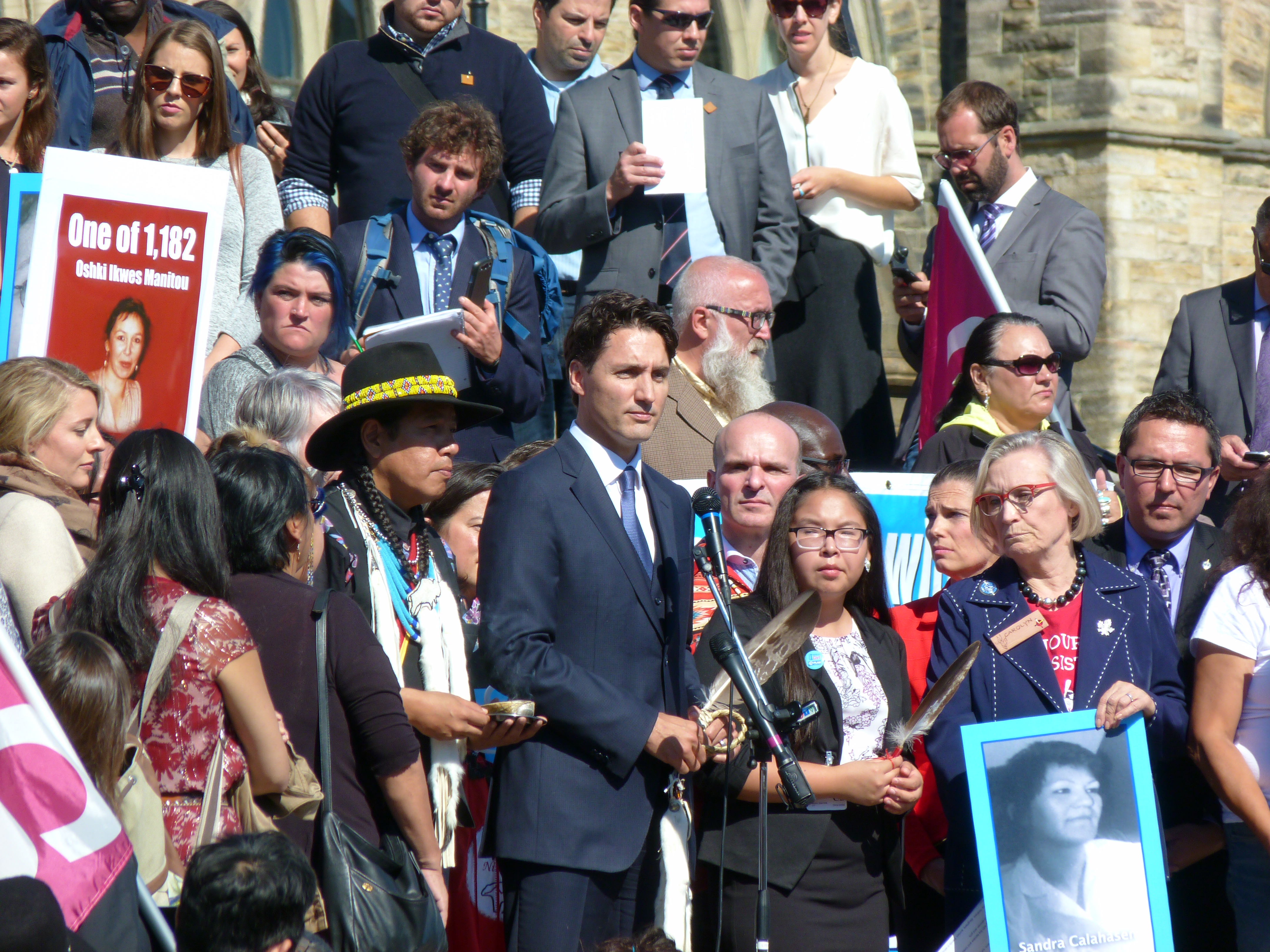
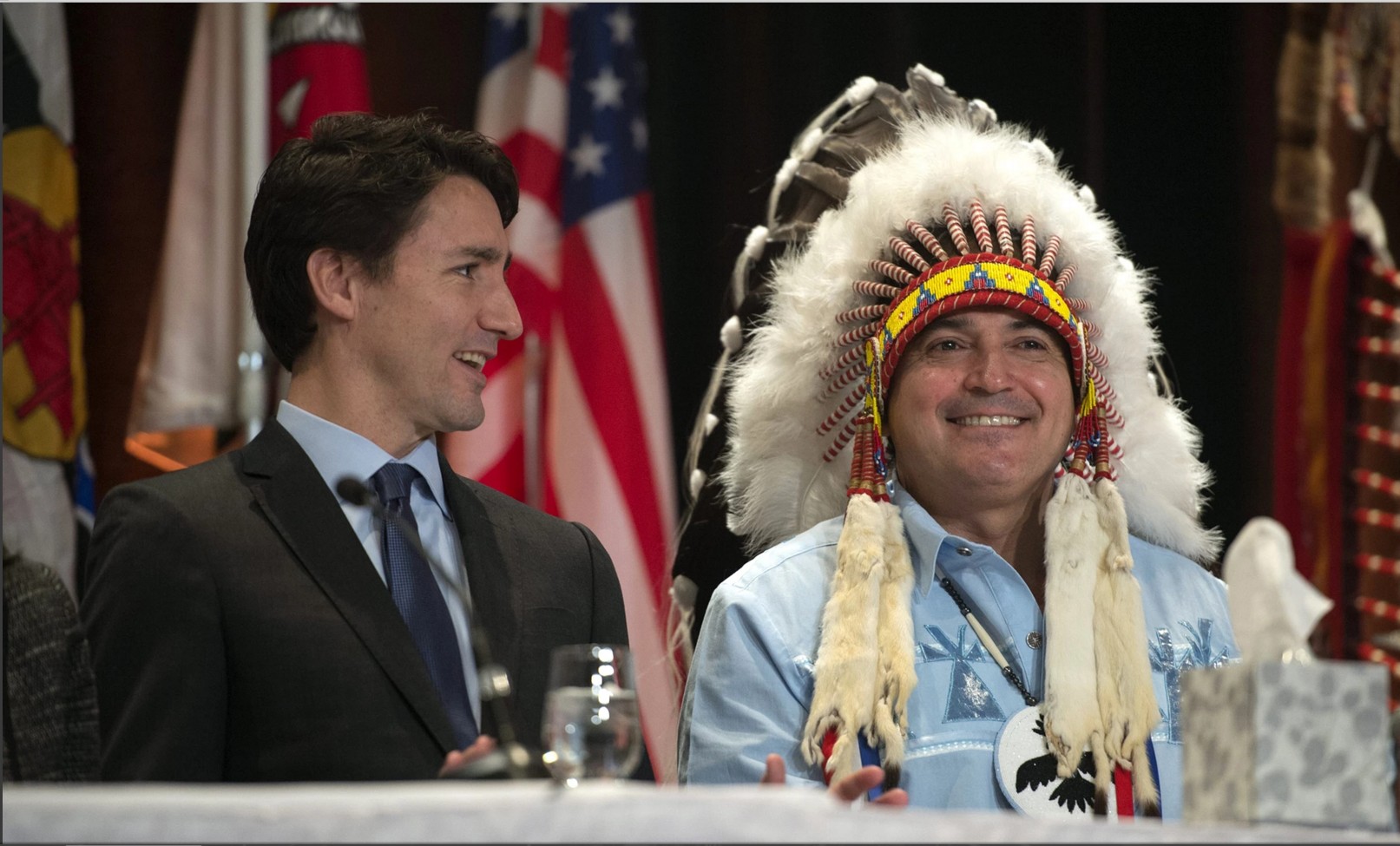
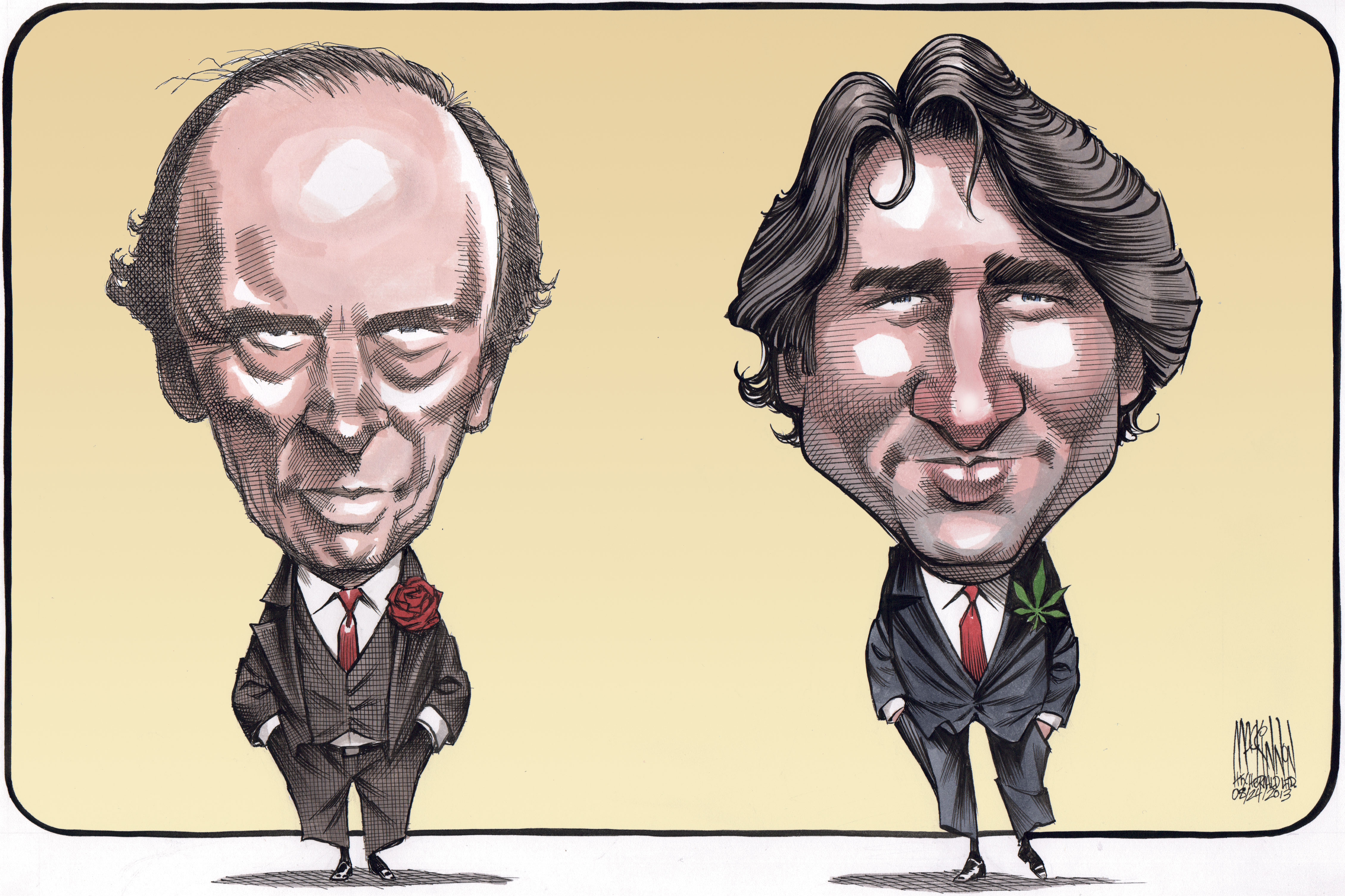



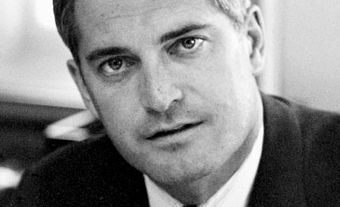
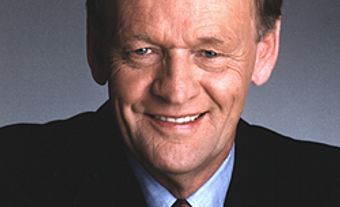
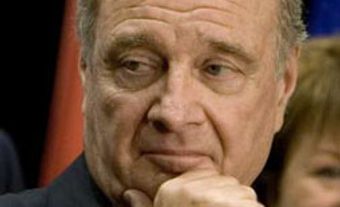
.jpg)